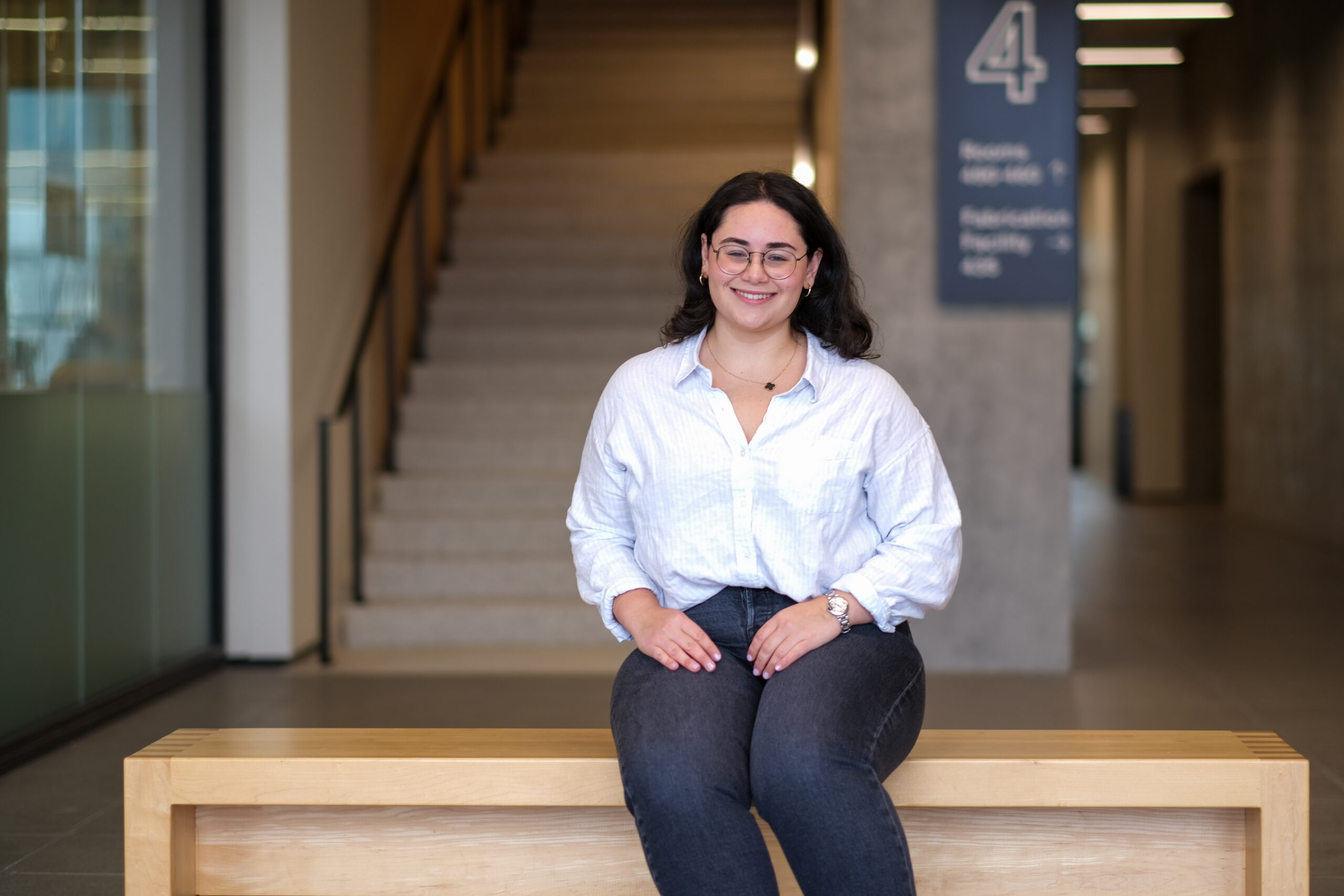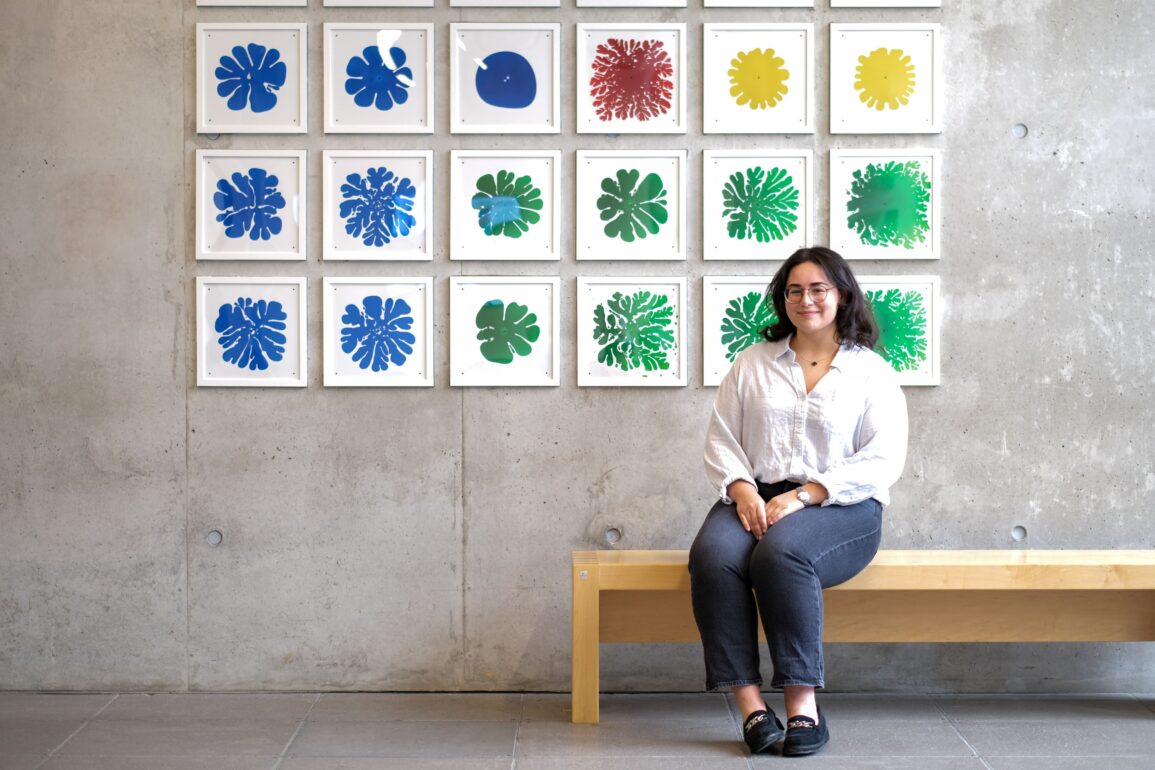Alison Hacker (BME2023) recently graduated from the MEng program at the University of Toronto. Now pursuing a degree in medicine at Queen’s University, Alison talks about what motivates her in medicine, and how incorporating social considerations when treating patients could produce better outcomes.
How far are you into medical school?
I have completed my first year and I am about to enter my second year at Queen’s University for medicine. Currently, I am in my pre-clerkship year, which focuses on foundational learning. This involves a combination of course-based and case-based learning, as well as small group sessions. During this time, we acquire a mix of basic science and medical knowledge, establishing a solid foundation.
In addition to theoretical learning, we are gradually introduced to clinical skills and practice. This includes learning how to perform physical examinations, interpreting vital signs and symptoms, and formulating differential diagnoses. We develop a physician’s approach to problem-solving, learning to consider various factors when assessing patients and determining appropriate tests or treatments.
Once we begin the clerkship phase, which starts in the third year, we will engage in core rotations. This means we will work in hospitals and other clinical settings, alongside preceptors who are physicians or residents guiding and instructing us. This is when we will have direct patient interaction, conducting interviews, running tests, and performing physical examinations in a real practice setting.
Have you decided on a specialty yet?
Currently, I see myself working with people of various age groups and backgrounds. There are specialties that focus on specific patient populations, while others are more general. I am inclined towards the broader spectrum. I can envision myself working with children, young adults, and older adults.
What are some new trends you see changing in medical education?
It is crucial to have a deep understanding of the science, physiology, and appropriate care plans for patients. There is an increasing emphasis on the social determinants of health. Recognizing and appreciating these determinants is essential in ensuring that patients feel comfortable with their healthcare providers.
Building trust and establishing longitudinal relationships with patients is key to achieving this. Patients should feel confident in approaching their physicians and discussing how social or cultural factors may be affecting their health. It is important to broaden the care plan beyond medical needs and offer support and resources within the community.
For instance, during the COVID-19 pandemic, vaccine hesitancy became a significant issue. There are various reasons behind this hesitancy, such as a lack of education regarding vaccine science. Additionally, cultural perspectives play a crucial role. For example, some indigenous populations in Canada were hesitant to take vaccines due to historical abuses by medical providers, which eroded trust. Tailoring care to these specific populations becomes essential in encouraging vaccination and rebuilding trust over time.
In a broader sense, medical education now recognizes the significance of community health and the need to establish trust within communities. This involves understanding and addressing the specific healthcare needs of different populations. For example, in dermatology, there is a growing understanding of how conditions may present differently in individuals with darker skin tones. This awareness ensures that conditions are not missed and that people of color receive appropriate care.
What does a medical system that perfectly incorporates social consideration look like?
As an individual working in healthcare, there are important steps you can take to contribute to positive change. Advocating for inclusion is crucial, not only in terms of increasing diversity within medical schools but also ensuring that healthcare providers reflect the communities they serve. When patients seek healthcare, it is beneficial for them to encounter providers who look like them and understand their unique challenges in accessing healthcare. This can help foster trust and improve patient experiences.
Face-to-face interactions and building relationships with patients are vital. Patients need to feel seen, cared for, and understood beyond their medical needs. Meeting their emotional and psychological needs contributes to a holistic approach to healthcare.
While individual efforts are essential, it is also important to recognize the need for systemic changes. Addressing healthcare disparities, promoting diversity in the healthcare workforce, and implementing policies that support equitable access to care are long-term solutions that require collective action.
By combining individual advocacy, patient-centered care, and efforts towards systemic change, healthcare professionals can contribute to a more inclusive and patient-centered healthcare system.

How do you stay engaged in so many different topics when treating patients? Isn’t it difficult to be an ‘expert’ in everything?
Effective healthcare involves not just physicians but also a range of professionals such as nurses, occupational therapists, physiotherapists, social workers, and others. Each member of the team plays a unique role and contributes to comprehensive patient care.
Recognizing the value of a team-based approach allows healthcare providers to address the diverse needs of patients more effectively. For example, while physicians focus on the medical aspects, they should also consider the social determinants of health and connect patients with the appropriate professionals who can help with specific challenges. If a patient expresses social problems that impact their well-being, a social worker can assist in addressing those issues, which can positively influence treatment adherence and overall patient outcomes.
Understanding when to involve specialists in different areas is also important. Mental health is an integral part of overall well-being, and recognizing when a patient needs support from psychiatry or psychotherapy is crucial. By referring patients to the appropriate specialists, healthcare providers can ensure that the patient’s emotional and psychological needs are adequately addressed alongside their physical health.
Healthcare is indeed a holistic endeavor, and no single healthcare provider can solve all of a patient’s problems or fully comprehend every detail of their history. However, being able to identify when certain factors, such as social circumstances or specific healthcare needs, impact a patient’s health allows providers to call upon the expertise of other team members. Collaborating and leveraging the skills of different professionals within the healthcare team leads to more comprehensive and patient-centered care.
What are some of the things you like and dislike about medicine?
Medicine provides a unique opportunity to combine your passion for science and academia with the ability to make a tangible impact on people’s lives and their health. It’s fulfilling to apply your knowledge and skills in a way that directly benefits patients and contributes to their well-being. The meaningfulness of the field is a significant aspect that attracts many individuals to pursue a career in medicine.
At the same time, it is important to acknowledge the challenges and limitations within the medical profession. The competitive nature of medical school admissions and the resources required to succeed in the application process can create barriers, disproportionately favoring those with privilege. This can result in talented individuals who are passionate and capable of providing excellent care being excluded from the profession.
It is important to foster a more inclusive and equitable medical profession, where aspiring healthcare providers from all backgrounds have a fair chance to contribute their skills and knowledge.
Could you provide any recommendations or guidance for engineers who are interested in pursuing a career in the field of medicine?
- Seek diverse perspectives: Encourage them to speak with a variety of healthcare professionals from different specialties and backgrounds. This can include physicians, nurses, therapists, administrators, and other allied health professionals. Hearing about their experiences, challenges, and rewards can provide a comprehensive understanding of the field.
- Shadowing and volunteering: Encourage them to participate in job shadowing or volunteer opportunities in healthcare settings. This hands-on experience can give them a taste of what it’s like to work in healthcare and help them assess their level of interest and suitability for the field.
- Hone your technical skills: The technical skills acquired in engineering, such as coding, data analysis, and problem-solving, can be applied in medical research and healthcare technology. You can explore opportunities in medical informatics, health data analysis, bioinformatics, or medical device development. These skills can help you contribute to advancements in healthcare and improve patient outcomes.
- Develop critical thinking and analytical skills: Engineering education emphasizes critical thinking and analytical skills, which are crucial in diagnosing and treating patients. These skills enable you to approach medical cases with a systematic and evidence-based mindset, ensuring accurate assessment and effective treatment plans.
- Reflect on personal values and goals: It’s important for individuals to reflect on their own values, interests, and long-term goals. Understanding their motivations for pursuing a healthcare career can help them align their choices with their aspirations.


